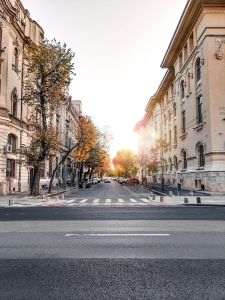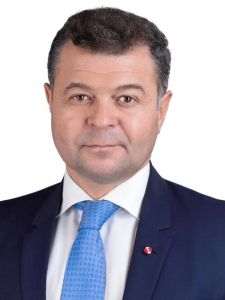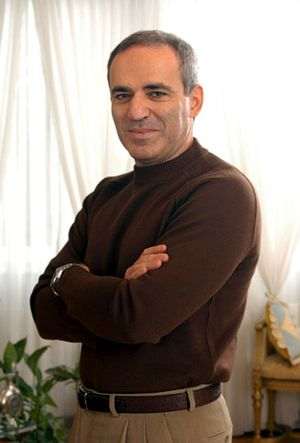
Călin Georgescu is causing a stir on television and TikTok with the nonsense that we shouldn't be concerned about the war between Russia and Ukraine, and instead, we should remain neutral and focus on our own interests.
The hosts are left dumbfounded.
An ignorant and cognitively limited agronomist, Călin Georgescu presents himself to those with severe intellectual deficiencies as a kind of prophet:
"Do you believe in Jesus Christ as God and Savior?' asks Father Valentin Berechet, and he responds, "With all my being and consciousness and soul, I offer, I have offered, and I have given to understand, to let into my mind what must be spoken in these times.'
In this grammatically fractured way, he wants to say that, in fact, his words are transmitted directly to him by Jesus Christ.
Divine inspiration plucks his vocal cords.
It's a divine harp.
He's a prophet.
Blinded by his aura, Monica Ghiurco from TVR1 is almost ready to kneel before him. In reality, the man often utters idiotic aphorisms.
I've heard him talk about "leaders of the soil' (as opposed to "temporary holders of power,' like Ciucă and Ciolacu), claiming that this is what Mihai Viteazul and Stephen the Great were.
Sir, "soil' means "a clod of earth, land' in the dictionary, and neither Mihai Viteazul nor Stephen the Great were "land leaders'; they were rulers.
Yes, it's true, "soil' can also mean "ancestral land,' but this interpretation only makes sense in Călin Georgescu's mind, who has titled his association (or whatever it is) "Ancestral Land' (after the Legionary publication "Ancestral Land' of the Archangel Michael Legion, which appeared around 1927).
His confusion between land and people is characteristic - I've heard him say that "the country is a larger family' (no, a country is the territory of a state, while a family is a group of people), proving that he indeed doesn't grasp the meanings of terms.
I've heard him talk about "conscious consciousness,' and, good grief, it chills me! Soon he'll be writing a parallel dictionary of foolish philosophy. Though he constantly brandishes faith, Călin Georgescu knows neither the Bible nor even minimal Christian theology."
"All life on this planet Earth originates from the most important statement in all of world history, made by Jesus Christ: "God is love.' Period."
Period?!
Ha, ha!
In the Bible authorized by the Holy Synod, the statement "God is love" was not made by Jesus Christ. Not anywhere.
It appears in the "First Epistle of John" (4:8), as written by the Apostle John. Not by Jesus. So, according to Georgescu, the most important statement in world history, from which all life on this planet Earth originates, is actually owed to the Apostle John, who is believed to have died around the year 100.
But, as Călin Georgescu says, "great minds discuss ideas, not people." Therefore, what difference does it make if it's the Apostle John or Jesus Christ (as a person)? They're all the same; what's important is the idea. Still, the exact idea is a bit hard to grasp. Biblically speaking, can life really come from a statement? Indeed, in Genesis, God creates life through the power of His word: "20. And God said, "Let the waters teem with living creatures, and let birds fly above the earth across the expanse of the sky!' And so it was."
But we note that life arises from a Command, an imperative sentence, not from a statement. A statement is a declarative sentence that expresses an observation, an idea, or information about a situation. Statements are neutral and describe something considered true or real. For example, "God is love" is a statement, as it conveys an idea about God. In contrast, "Let the waters teem with living creatures" is an imperative sentence, as it expresses a command through which life is created. So how, Georgescu, how does life (biblically speaking) come from a statement?! Then, considering that historians claim John wrote his first Epistle sometime between 85-90 A.D., and that Georgescu says life on planet Earth originates from it, it raises the question of whether the people who lived and died before then were actually alive-or were they already dead? And what about the fish and birds that God gave life to, according to the quoted verse? Did ancient history even take place, or are we talking about zombies? Was the Apostle John not alive before he spoke? The ridiculousness doesn't end here, as this raises the issue of extraterrestrials. TikTok-where, competing with Diana Şoşoacă scratching herself while kneading funeral cake, we find Dr. Călin Georgescu (a doctor of pedology, the science of soil) swimming in an icy lake (showing off judo skills and horseback riding, à la Putin, "that is, rifle and broad belt")-is filled with Anunnaki and reptilian aliens from Antarctica.
And I wonder if they, being on this Earth, also originate from the statement made by the Apostle John, which the good doctor has deemed the source of life. We should note that the statement "God is love," made two thousand years ago, is tolerated today by Christian theology, understood as a popular-level concept."
"The fact that Christian theology recognizes that any description of God is incomplete and limited makes the statement "God is love. Period.' sound absolute and grotesque, like an elephant in a china shop, leaving no room for the inherent complexity and mystery in understanding divinity or for the multiple theological interpretations of creation and God's nature. In other words, it is a primitive, foolish update, aimed at fools. I wonder if, after this plunge into Călin Georgescu's mock wisdom, Monica Ghiurco from TVR will snap out of her adoration or if thinking pains her. Călin Georgescu's admirers might also wake up to his absurd claim that we shouldn't care about what's happening in Ukraine: "But for us, as a country, it's important to be completely neutral in any conflict; it's not our business what happens...' (TVR1, Punctul critic, October 31, 2024, starting at minute 48). Călin Georgescu insists on saying on TVR, ETNO TV, on TikTok, on YouTube, in all the podcasts and provincial conferences for housewives, that "the brilliance of the Romanian people lies in their neutrality in all conflicts.' And he gets applause. Friends, this is nonsense from many perspectives, but first, it strikes one as anti-Christian, blatantly contradicting biblical verses and the teachings of Jesus:
News from Ukraine reports that Orthodox Christians are killing each other there, so, as the quoted verses show, indifference to these events is against the Bible, which nowhere commands, "mind your own interests!'; on the contrary. Let's remember that all these verses are part of the Old Testament Commandment (Leviticus 19:18) , "Love your neighbor as yourself' (see "The Common Origin of Hillel and Jesus' Rules in Leviticus 19:18') . Jesus reiterates it, adds it to "Love God,' and says that, together, these two Commandments sum up the entire Law. Well, busy with judo, swimming, and horseback riding, Călin Georgescu hasn't had time to digest Christianity: "My position is that we should only care about the well-being of the Romanian people. That and nothing more. I don't care about others.' (On ETNO TV)
What a man, what grandeur! Călin Georgescu doesn't realize that this is actually sarcasm, a line quoted from Caragiale: "I don't want to know about your Europe, sir; I only care about my Romania and only Romania...' (Caţavencu, A Lost Letter - Act III/Scene III) Gregarious, with sheep-like thinking, Călin Georgescu is unable to grasp what even children understand: if we don't care about others, then why, when we need it, would others care about us? It's intuitive that solidarity against the aggressor is pragmatic, serving our nation's interests. In whose interest is Călin Georgescu promoting the idea that we shouldn't care who the aggressor is in Ukraine? It's obvious. In the aggressor's interest."
"At ETNO TV, the moderator-a regular lady-asks Călin Georgescu: "But can we speak of stability when there's a conflict on our border...'
Călin Georgescu (interrupting her with superiority): "Listen, please, don't ask me banalities; you're falling into this outdated paradigm where everyone asks about things that aren't our concern, things that don't interest us at all.' Moderator: "I know what's happening at the border...' Călin Georgescu: "Hold on a moment. No, you don't. Have you been there? Personally?' From here, Călin Georgescu steers the conversation in a ridiculous, implausible direction, insisting that you can only claim to understand the Russian-Ukrainian conflict if you've been there personally and seen it with your own eyes.
The scene is straight out of The Good Soldier Svejk by Jaroslav Hasek, where Svejk receives a letter from the Antipodes and reacts with genuine surprise, saying he didn't even know the Antipodes existed. The ETNO TV moderator's pushback seemed to unsettle Călin Georgescu; he lost his solemnity and became rude and condescending, showing his true colors. Călin Georgescu managed to gather about three hundred thousand fools to sign for him to run for president. Foolishness is darker than stupidity. Compared to foolishness, stupidity is like a radiant angel descending from the heavens. Călin Georgescu is like a blind bat, guided by ultrasounds; when they see him, the rats Ciucă and Ciolacu shout to Viorica Dăncilă: "Mom, look, a fairy!' The truth is that Dăncilă is the mother of foolishness in Romanian politics; the pipe burst with her."
• Post Scriptum
The distinction that, in this text's metaphor, makes Călin Georgescu a bat compared to the rats Viorica Dăncilă, Marcel Ciolacu, and Nicolae Ciucă (as representatives of the stupidity and ignorance of an idiotic political mass) is that the former, somehow, has put forward a political program. The program is pastoral, ignoring the economic and technical realities of the third millennium, confusing the principle of subsidiarity, and unfamiliar with polycentric management-a higher stage in the direction of distributism, which he promotes-and it advances false values, yet it has been concretely formulated for years and can thus stimulate debate. Although debatable, the program Călin Georgescu claims is oddly superior to the nonsense he himself utters and beyond his inferential abilities (raising suspicion that someone else may have written it for him).
Another distinction from the rat pack is that, while he does say ridiculous things, he consistently raises the issue of happiness, which for the others is like quantum theory. That is, he has in some way brushed against certain fundamental issues but reflects them like a warped mirror, requiring the effort of ten wise men to clarify what foolishness he has spouted and what he lacks culturally. But the rats haven't even heard of the issues he touches upon. These are sufficient reasons for me to dedicate this analysis to him, as some may wonder why I am concerned with a presidential candidate who has no chance. The point is, in fact, to encourage literacy and the creation of political programs. It is not my fault that, when examined closely, Călin Georgescu proves not to be the providential figure he claims to be but rather a misleading bat of obscurity.




























































